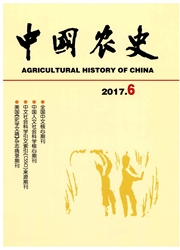

 中文摘要:
中文摘要:
新中国成立后,乡村生产受到政权管理模式的重大影响。据人民公社时期联民村水稻种植的考察,国家对农业生产和农村社会发展有着直接的规划和安排。水稻种植各个环节以农民自身行动呈现,却也无不体现了国家和集体组织的力量。在生产技术尚未成熟的情况下,对产量的高度需求造就了密集劳动的场景。国家技术和权力推进能力的有限性、农民和乡村文化对于国家权力调适的有限性以及土地承载的有限性,既塑造了人民公社的成就,也衍生了许多不良后果,形成了特殊的乡村景观。
 英文摘要:
英文摘要:
After the founding of new China, rural production was heavily influenced by regime management. According to the study of rice planting in Lianmin Village during the period of the People's Commune, the state had direct planning and arrangement for agricultural production and rural social development. All links of rice planting reflect the strength of the state and collective organizations except peasants' efforts. Under the condition of immature production technology, the high demand for output created a scene of intensive labor. The limitation of the ability of the state to promote technology and power, the limited adaptation of the peasants and the rural culture to the state power, and the limited carrying capacity of the land formed a special rural landscape, which not only shaped the achievements of the people's commune, but also caused many bad consequences.
 同期刊论文项目
同期刊论文项目
 同项目期刊论文
同项目期刊论文
 期刊信息
期刊信息
